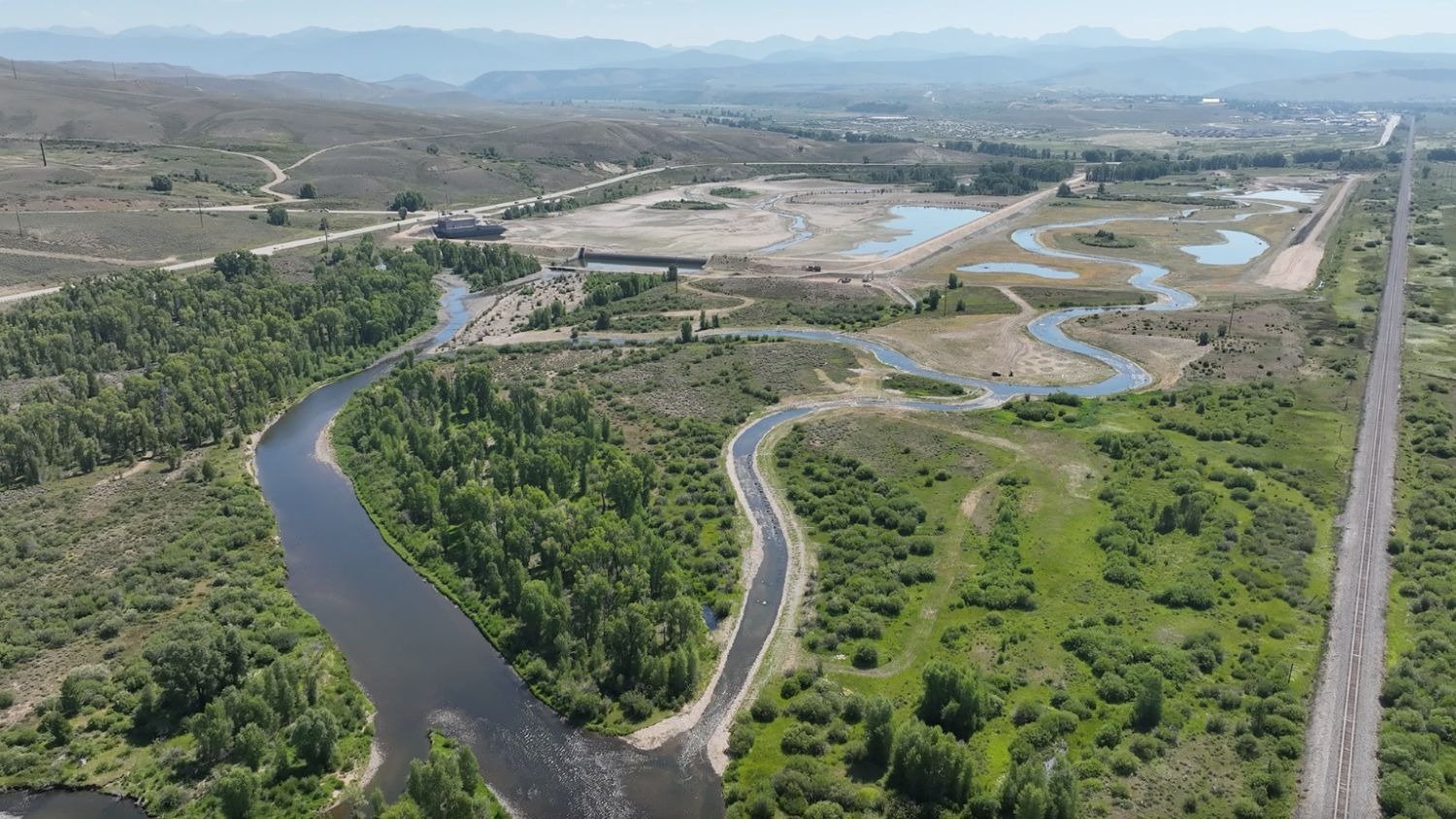Efforts are being made on the state level to establish instream flows in rivers as a “beneficial use” under Colorado law, and a few locals are getting behind the legislation. Kirk Klancke of Trout Unlimited and manager of a local water and sanitation district, endorses HB 1280, introduced last week, for making instream flows a “beneficial use to mankind.”
Klancke, along with Mitch (Mo) Kirwan of Mo Henry’s Trout Shop, participated in a press conference introducing the legislation recently. They talked about the economic impacts of low flows.
Not only are river flows necessary to the recreation and tourism industries helping to drive Colorado’s economy, they said, but are critical to sustaining fish, wildlife and healthy river corridors.
In accordance with Colorado water law, Klancke said his district must prove beneficial use of water rights in order to protect those rights. The district’s water rights are secured for future growth, but at present, are not being fully utilized for the purposes of the district.
Therefore, because of the “use it or lose it” component in Colorado water law, the remaining water to which the district has rights is pulled out of the river to irrigate a field that no longer gets hayed, he said.
“It seems like a foolish use of water when leaving it in the stream has more beneficial use,” he said.
And as more and more water gets diverted from the Fraser River, low flows are driving the cost of waste water and water treatment upward, he said.
The concentration of pollutants is greater when flows are lower, resulting in higher expenses related to treatment operations, maintenance and construction, Klancke said.
The Colorado Environmental Association has teamed up with other instream flow advocates, such as Trout Unlimited, the Environmental Defense Council and the Colorado Water Conservation Board, to create the Healthy Rivers Campaign in support of three legislative solutions proposed at the Statehouse.
Groups such as the Rocky Mountain Farmers Union have also endorsed the bills, according to Water Caucus Coordinator Becky Long of the Colorado Environmental Coalition.
“Colorado water law is many things, but logical and simple aren’t on the list,” Long said.
The proposed bills are not in any way designed to reconstruct the existing water authority already worked out in statute, she said. Among the chief merits of current water law is that it has “an infrastructure built around it that people agree to,” she said.
But what the proposed laws are designed to do is “provide protection for water right owners who want to do the right thing and keep water in the river.”
Water right owners would do this by working with the state through the Colorado Water Conservation Board, an entity that since 1973 has been the only body allowed to acquire water rights for the sole purpose of letting water continue to flow downstream.
The conservation board acquires these rights in a number of ways, by grants, purchases, donations or leases.
HB 1280, dubbed the “Protect Lease Instream Flow Water Right Bill” among supporters, has been crafted to ensure protection of water rights if a rights owner chooses to donate or loan water to the Colorado Water Conservation Board.
A Healthy Rivers Campaign fact sheet states that “by protecting the value of the owner’s water right for the future, this bill will allow individuals and cities to donate or lease water to the state without fears of future penalties.”
The Colorado Legislature passed a similar bill, HB 1012, last year which allowed for a temporary loan or donation of water without penalty to the conservation board during drought times when the health of a river is in jeopardy.
“This year’s legislation, in my opinion, is a natural progression of that,” Long said.
Two pieces of companion legislation are set to follow HB 1012. One, sponsored by Rep. Kathleen Curry and Sen. Jim Isgar, would create a $1 million fund to assist the instream acquisition program. The other, sponsored by Rep. Jack Pommer and Sen. Dan Gibbs, is meant to create tax incentives for water-rights owners who choose to leave their water in local streams and rivers. The latter was written to offset costs that come along with each step of the process, such as the need to hire a professional hydrologist, for example, to provide documentation of rights.
“This bill allows (water right owners) to take tax incentives up to 50 percent of the current use value of a water right capped at $100,000 per water right owner,” Long said.
The tax incentive program would have a limit of $2 million per year starting out, she said, but it is hoped the program would have a chance to grow as participation grows.
— Tonya Bina can be reached at 887-3334 ext. 19603 or e-mail tbina@grandcountynews.com.







